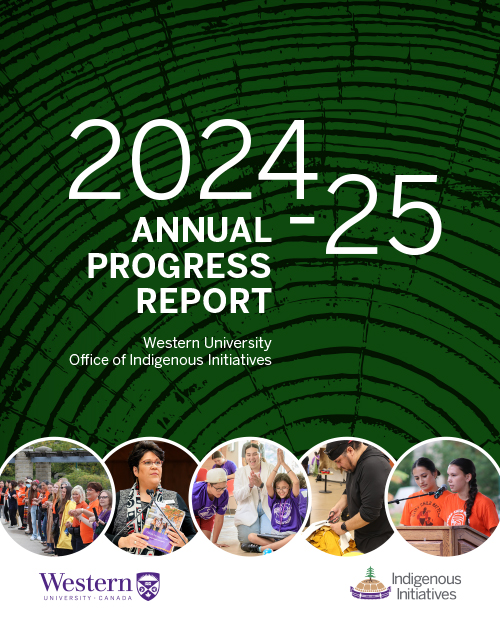Truth and Reconciliation
"Education got us into this mess and education will get us out of this mess."
- Truth & Reconciliation Commissioner, Murray Sinclair
One of Western University's key strategic priorities in the "Towards 150" strategic plan is "advancing Reconciliation with Indigenous communities" under theme two - People, Community and Culture.
The Truth and Reconciliation Commission was formed in 2008 after the Indian Residential Schools (IRS) Settlement. The survivors requested part of their settlement be used to create the commission, and record what happened, so no Canadian could claim ignorance of the IRS system. In 2015, the Truth and Reconciliation Commission released their Final Report, including 94 Calls to Action, after several years of travelling across Canada to listen to, and document, survivor and family stories. In 2015, after the report was finalized, Truth and Reconciliation Commissioner Murray Sinclair issued a statement that included the following:
Since it's creation in May of 2020, the Office of Indigenous Initiatives strives to lead Western towards meaningful Reconciliation across campus, in curriculum and in London and surrounding area.
In Maamwi Gizekewag, OII's Indigenous Curriculum and Learning Report (2021), we include a gap analysis of the Calls to Action relevant to various disciplines taught at Western (pg 23), and led the first National Day for Truth and Reconciliation at Western on September 30, 2021.
In this section you will find relevant information to the Truth and Reconciliation Commission, Calls to Action, and various initiatives at Western, including National Day for Truth and Reconciliation programming schedule, on the left-hand navigation column.
Helpful links:
The National Centre for Truth and Reconciliation
The Truth and Reconciliation Reports
Truth and Reconciliation: 94 Calls to Action
NCTR: Dialogues - Survivor Perspectives, Discussion on the Education Calls to Action (Video)
Engaging with the National Day for Truth and Reconciliation (OII, 2023)
Huron College, Western University, and Residential Schools:
“My Own Old English Friends”: Networking Anglican Settler Colonialism at the Shingwauk Home, Huron College, and Western University (Cross, N. & Peace, T., 2021)
FAQs:
Where can I get an Orange Shirt?
How is Canada doing when it comes to Reconciliation?
Yellowhead Institute Calls to Action Accountability: A 2021 Status Report on Reconciliation
Yellowhead Institute Calls to Action Accountability: A 2020 Status Report on Reconciliation
Yellowhead Institute Calls to Action Accountability: A 2019 Status Report on Reconciliation
How is Western doing when it comes to Reconciliation?
By making Reconciliation a strategic priority, and with the formation of the Office of Indigenous Initiatives, Western is working towards building relationships with the local First Nations and urban Indigenous communities in teaching, community service and partnerships.
How can I participate meaningfully in Reconciliation?
Everyone has a role when it comes to Reconciliation. Even though the Calls to Action call on specific governments and institutions, each of us can action them in some way. Be it teaching students about relevant Calls to Action in their discipline or the impact of Residential Schools on Indigenous Peoples; participating in learning and unlearning opportunities (extracurricular/professional development) on campus and in the greater community; or dismantling the many barriers Indigenous Peoples still face due to colonialism, your contributions and participation are valued, and so needed!

